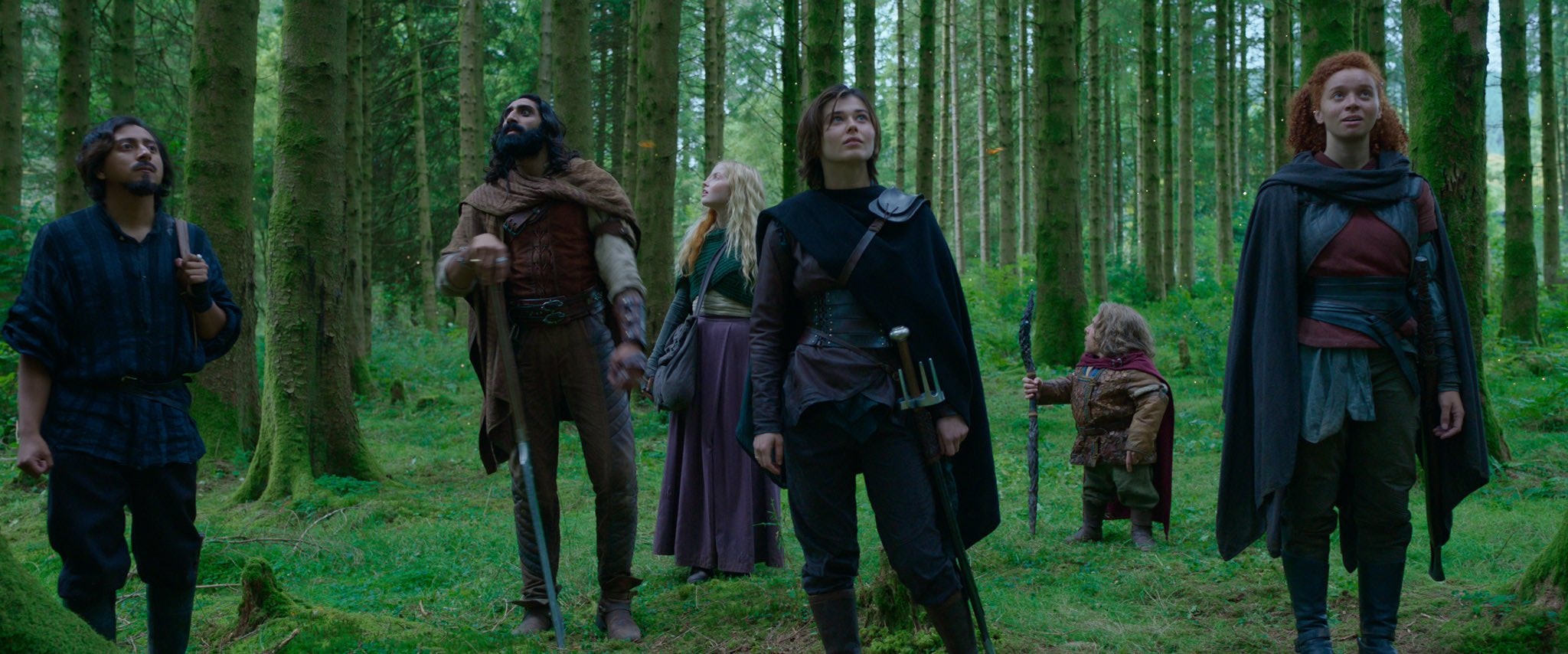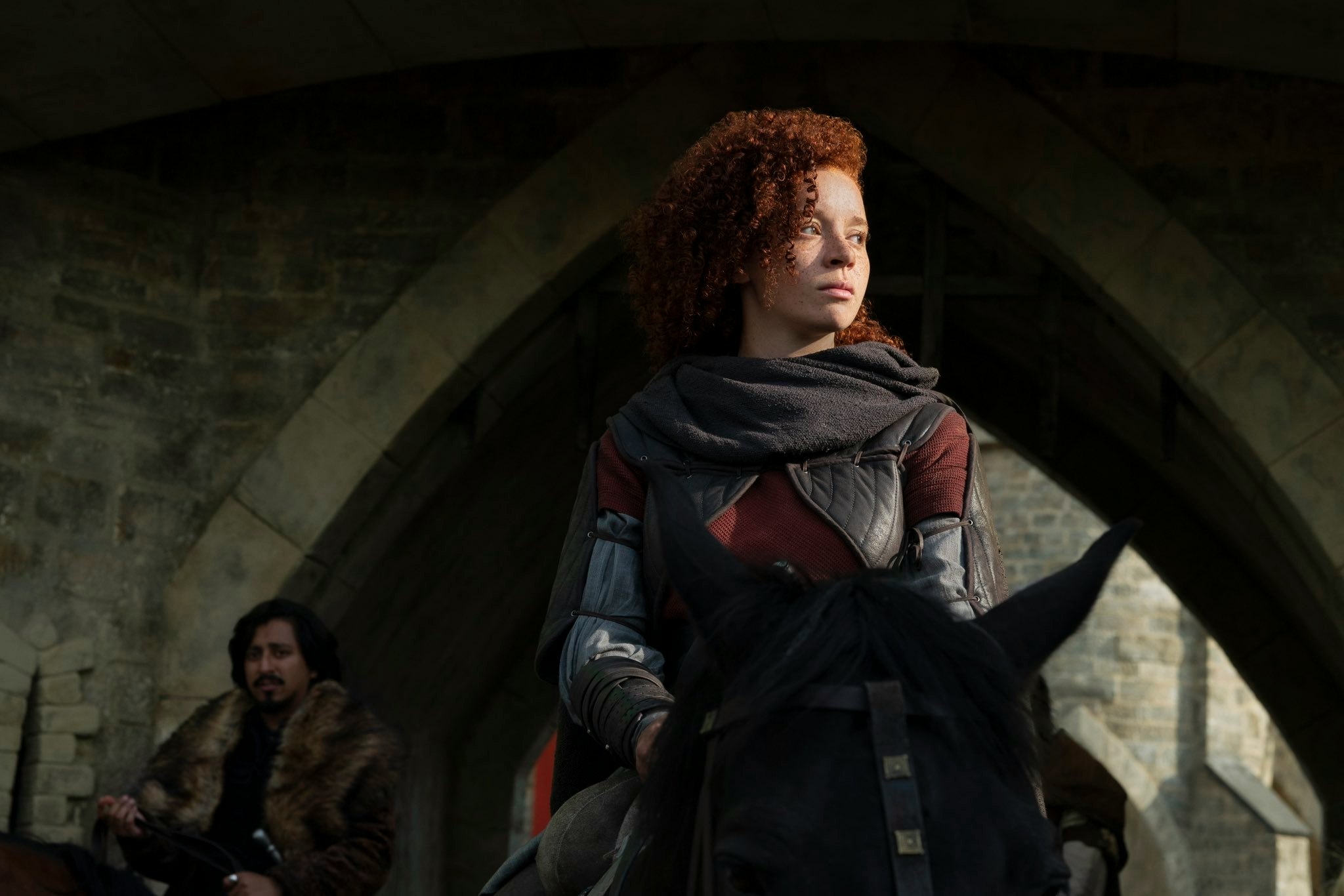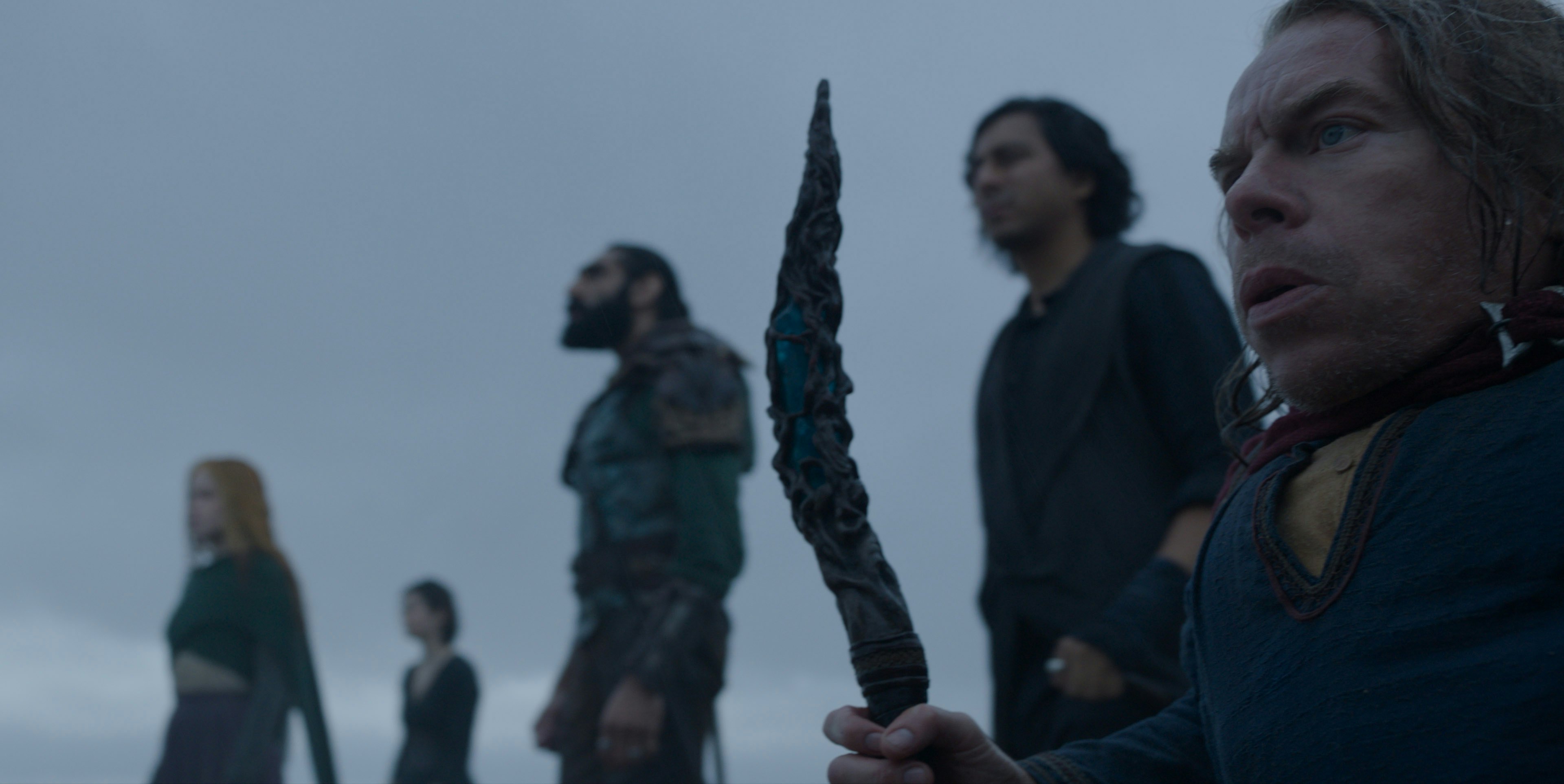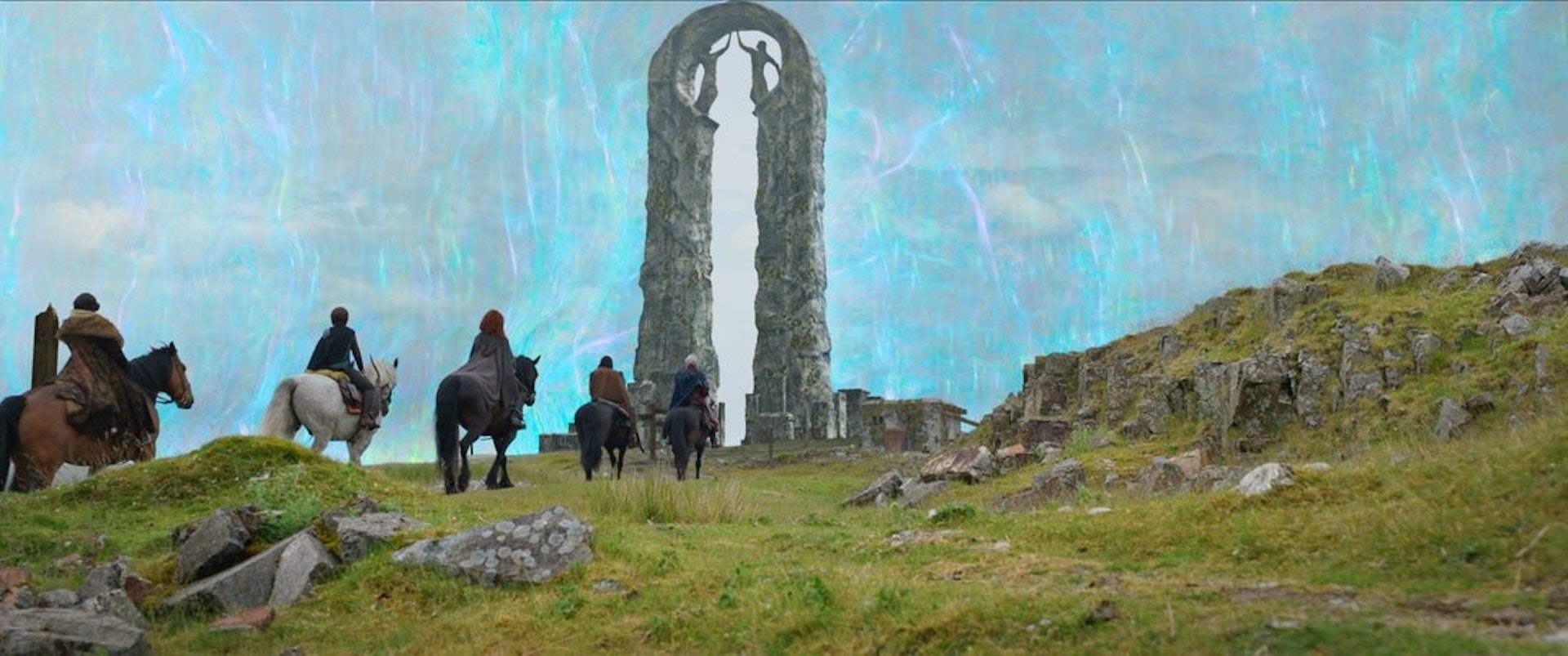
Warwick Davis still has a wand from Willow in the wall of his office, encased in a box frame.
“It sits up there as a reminder that anything’s possible, but the power normally to achieve anything is within you,” Davis told Inverse in a 2020 interview. “That was the message behind Willow: The power to control the universe is within you. It’s not anywhere else. The wand always reminds me to get out there and go for it.”
Thirty-four years after the original film that made Davis a household name, the actor who played the titular protagonist is headed back to the whimsical land of sorcerer supreme (at least, in this franchise), Willow Ufgood. Disney+’s Willow series is more spellbinding than it has any right to be for a theater-to-TV sequel show, but it brings back all of the charms of the iconic 1988 fantasy movie, then double downs on the magic and mayhem, remixing it just enough to satisfy fans both old and new.
Willow (the series) picks up on the events of Willow the film, which begins with the birth of Elora Danan, a baby with a rune birthmark who is prophesied to take down the evil sorceress Queen Bavmorda of Nockmaar, and become the next princess of Tir Asleen. When Elora is smuggled out of the castle and set adrift on a river raft to escape Bavmorda’s massacre of all newborns, she is found by aspiring sorcerer and humble farmer Willow Ufgood (Warwick Davis), a little person from the village of Nelwyn. With the help of various unlikely friends — Bavmorda’s daughter, Sorsha (Joanne Whalley), and Madmartigan (Val Kilmer) — Willow is able to boot Tir Asleen’s tyrant and leave Elora in the care of Madmartigan and Queen Sorsha. It’s the end of darkness in Willow’s world... Or so we thought.
What happens after the happily ever after in Willow is what Willow (the series) is all about— and it turns out that, like the Disney+ sequel Disenchanted, happily ever after may not always be “ever after.”
In the Willow series, Princess Kit (Ruby Cruz), daughter of Sorsha, is being married off to young, scholarly goober, Graydon (Tony Revolori). But all Kit wants to do is sword-fight with her best friend, Jade (Erin Kellyman), a knight-in-training. Meanwhile, Ellie Bamber (Dove) is rolling in the hay with handsome high-school jock prince Airk (Dempsey Bryk), Kit’s twin brother and the apple of Sorsha’s eye. But on the night of Kit and Graydon’s engagement celebration, evil seeps into the Mother World once again. An unlikely group of heroes from Tir Asleen sets off on a perilous journey far beyond their home, past the Shattered Sea, where they must face their inner trolls and come together to restore the forces of good.
Their first stop? To seek the aid of the greatest sorcerer in all the land, Willow Ufgood.

The pilot is Willow’s weakest episode. It’s a good thing that Disney+ is dropping the first two episodes on the show’s end-of-November due date. Too many characters are introduced much too quickly — in an intricate fantasy world that many viewers will not be familiar with — which may ultimately repel viewers who need their hand held a bit tighter during world-building. The pacing could have been slower to let Willow newbies catch up. As such, we do recommend you watch the original Willow film prior to the show to grasp the full breadth of the show and the importance of certain on-screen cameos and off-screen character, battle, and location mentions.
But while most of what Willow Season 1 sometimes gets wrong can easily be sorted out by Season 2, there’s one element that will hopefully be left behind in Season 1: Dempsey Bryk, who plays Kit’s twin brother and Sorsha’s son, Airk. Airk inexplicably has a distracting surfer-dude accent whilst being costumed exclusively in equally distracting Harry Styles’ Love On Tour stage wardrobe. We’ll leave it at that.
Thankfully, the rest of the ensemble cast is phenomenal. Some TV shows like to include diverse characters in a friend group merely for diversity’s sake — eager to meet a certain quota or percent with no plan for making this inclusion representative or dimensional — but Willow ensures that everyone on the team is bringing something to the table.
Don’t let the title fool you: Willow is an integral part of this story, and he’s absolutely still the heart of it, but Willow lets the other main characters stand out as much as the titular protagonist.

Warwick Davis shines as brightly in the role of Willow Ufgood as he did when he first played the part at 17 years old, but never outshines the rest of the cast. Davis is at his best in the series, portraying a lead man once again after several years of being sidelined as a side character. But just because Davis gives it his all, that doesn’t mean that the other actors aren’t giving their all either— or that Willow doesn’t allow viewers to take note of their equally outstanding performances.
Standouts of Willow include Ruby Cruz as Kit, who plays an edgy, swashbuckling princess that Disney has never been brave enough before to include in its fairytales; Erin Kellyman as Jade, the she-knight who complements the princess as her other half, but also as her own person entirely with a fascinating background; and Amar Chadha-Patel as Boorman, the wise-cracking Casanova who makes crass, current-day humor feel organic in this dark medieval fantasy world. After her nuanced, “manic pixie dream Cinderella” approach to Dove in Willow, Ellie Bamber will undoubtedly become 2023’s It Girl. And we don’t know who cast Tony Revolori as the lead’s twee bumbling love interest, Graydon, but we’re grateful that someone over at Willow’s camp was watching The Grand Budapest Hotel and taking notes.
But it is Davis, who brings the sweet and saucy Willow we know and love from the original film, while also deftly exploring a side of Willow that is more adult, more cynical, who brings the whole show together.

Aside from the cast, Willow’s greatest strength is its stunning cinematography and special effects. It might not be a big-budget Star Wars or Marvel production, but Willow is allowed to be as sumptuous as modern filmmaking technology allows. The light magic looks effortlessly glittery— like the shimmering butterflies that surround Dove and friends in Episode 5. And the dark magic seen in the show teeters on The Chilling Adventures of Sabrina-levels of macabre (just enough to raise a hair or two, but not completely spook you out).
Willow’s humor is another win for it. Nary a smile has been cracked in the fantasy shows of the past decade — save for The Witcher — somewhere along the line, we decided that the genre wasn’t meant to make viewers laugh. Willow does, though, and through numerous avenues. Sexual innuendos? Willow’s got it. Body gags? Willow’s got that, too. The most Monty Python-esque shenanigans you can think of? Yup, Willow’s got that. And more importantly, Willow elicits chuckles without it feeling forced.

Where Willow truly triumphs, however, is in its ability to somehow be the most groundbreaking and progressive show on Disney+. There are numerous interracial love triangles and couplings throughout Willow, which may not be new to Disney+ (or Lucasfilm, for that matter), but its inclusion of interracial lesbian representation on-screen that isn’t just depicted via a glance, or a nod, or a quick hand hold, or an off-handed mention, or a suggestion. Nope — there’s a kiss. There’s a declaration of feelings. And, light spoiler here: not just once.
Try as we may, it’s difficult to put into words just how gratifying of a viewing experience we expect Willow will be for fantasy fans who maybe want something with more spunk than the year’s past offerings. Willow isn’t a highbrow, hoity-toity cinephile watch (and that’s okay — that’s what House of the Dragon and The Rings of Power are here for). But Willow, even with its faults and its silliness, stands tall, above all other current fantasy shows, for its huge heart and a wonderful message at its core that refuses to be subdued.
Prepare to be enchanted.
Willow Episodes 1-2 are streaming now on Disney+







